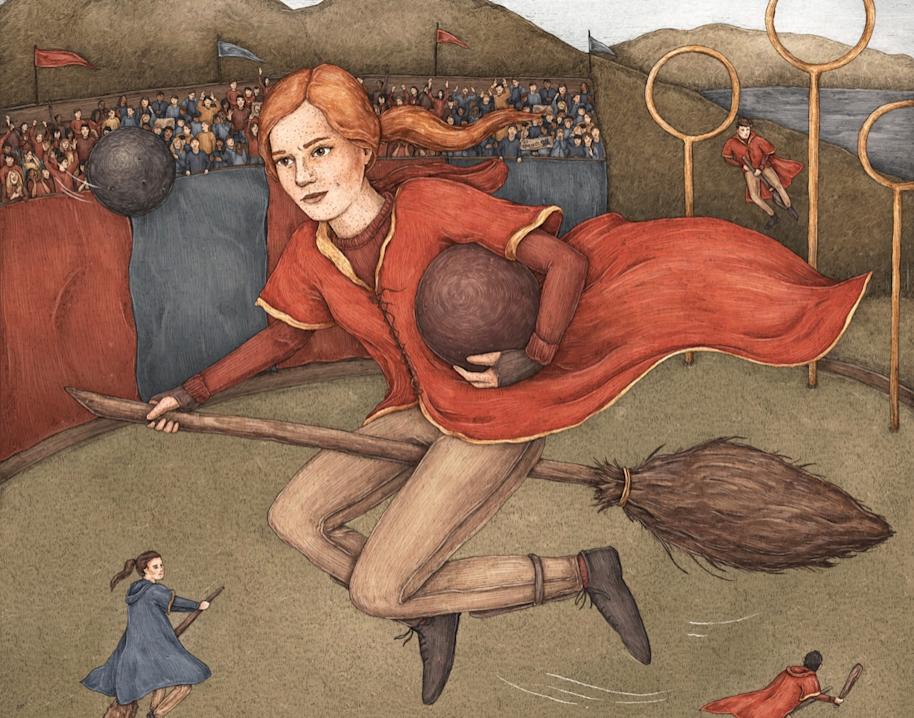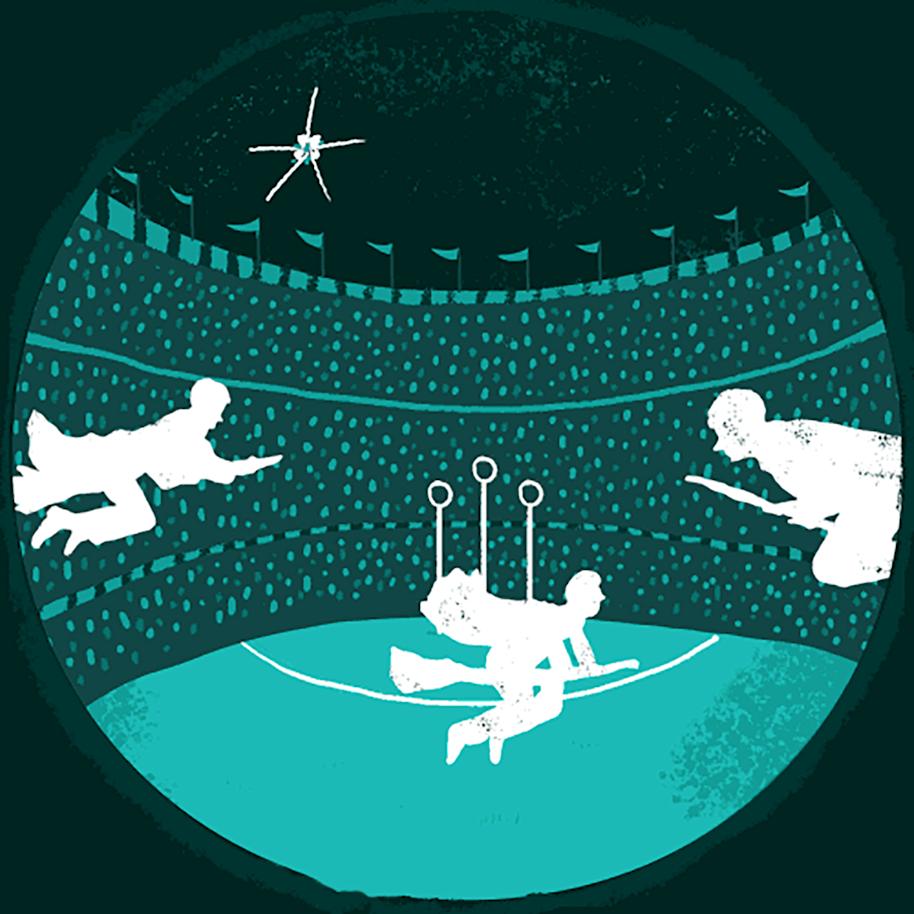
Quidditch was always one of the most exhilarating parts of the Harry Potter series, and for good reason. The sport was full of drama, suspense and, yes, violence. So from fun titbits about the sport from J.K. Rowling herself, to what happened to the students who decided to pursue the sport as their careers after completing their education at Hogwarts, here are some fun facts you may not know about the wizarding world’s most entertaining sport.
Quidditch was invented in Manchester
In an annotated copy of Philosopher’s Stone that was auctioned for charity, in which J.K. Rowling penned notes on her thought process behind the novel, she explained that she thought up Quidditch in a small hotel in Manchester.
‘I had been pondering the things that hold a society together, cause it to congregate and signify its particular character and knew I needed a sport.’
Harry really didn’t play that many Quidditch matches at Hogwarts

We all know that Harry Potter was an amazing Quidditch player, so it’s surprising to think that he only actually played nine matches during his time at Hogwarts. Of course, he could have played more if he hadn’t been stuck in detention, or in the hospital wing, or there wasn’t a Basilisk roaming the school Petrifying students (and so on).
But in the matches that he did play, he was hugely successful. In fact, when Harry played he only ever lost two games, and both times it was due to circumstances beyond his control; fainting after Dementors went into the Hogwarts grounds without permission, and that very unfortunate incident when Cormac McLaggen knocked him out with a Beater’s bat.
Despite his success at Hogwarts, Harry never went on to pursue a career in the game. Who knows: if he had, he could have ended up teaming up with Oliver Wood once again, who went on to play for Puddlemere United’s reserve team after finishing Hogwarts. Although that sounds considerably more stressful than what Harry actually did as a career – going after Dark wizards as an Auror and then becoming Head of the Department of Magical Law Enforcement.
Ginny had a colourful Quidditch career

Unlike Harry, who went into the Auror business, Ginny kept up playing Quidditch and ended up having a career as a Chaser in the all-female team, the Holyhead Harpies. According to J.K. Rowling, after retiring from the sport, the mum-of-three went on to become the senior Quidditch correspondent at The Daily Prophet, and even covered the 2014 Quidditch World Cup.
The 2014 Quidditch World Cup took place in Argentina

The 427th Quidditch World Cup took place in the Patagonian Desert, where Bulgaria won the Cup against Brazil in the final – and guess what? The whole of Dumbledore’s Army was there to see it! Since Rita Skeeter was reporting on the tournament gossip, we found out that Harry, Ginny and their three children enjoyed the match (and in the VIP box no less!) with the Weasleys, Neville Longbottom and Luna Lovegood, who are all now bona fide celebrities.
J.K. Rowling wrote: ‘Fans from all corners of the globe stormed towards the area where members of Dumbledore’s Army were rumoured to have been sighted, desperate above all else for a glimpse of the man they still call the Chosen One.’
And Viktor Krum came out of retirement to play in it

Aged 38, Viktor came out of retirement and was the oldest player in the competition at the 2014 Quidditch World Cup. Unlike in 1994, when he caught the Snitch and ended the match before Bulgaria had enough points to win, Viktor shut down critics who felt he was too old to get back into the game by taking his team to victory.
The Quidditch balls have their own origins

In J.K. Rowling’s companion book, Quidditch Through the Ages, the author revealed that before the Golden Snitch was used in the game, witches and wizards would play by trying to catch a bird called a Golden Snidget. But why was it worth 150 points (a fact that, as J.K. Rowling has previously pointed out, has been met with annoyance from some readers)?
According to Kennilworthy Whisp’s textbook on the subject, this became popular after a wizard named Barberus Bragge offered 150 Galleons to anyone who could catch the Golden Snidget, and the rest, as they say, is wizarding world history.
As for the Quaffle, readers might not know that the modern version is known a Pennifold Quaffle, named after Daisy Pennifold, a witch who had the idea of charming to Quaffle so that it would fall to the ground slower than a normal ball, thus revolutionising the game.
The Firebolt broom is partly made by goblins

There’s a reason why Harry’s much sought-after broomstick performs better than its competitor brooms in the market: it is made using goblin-made ironwork which gives the Firebolt better stability. This is also why not so many of them are made – goblins are prone to strikes and walkouts.
You can read more about the Firebolt's origins, written by J.K. Rowling here.
The longest Quidditch match lasted about three months

Because a Quidditch match can only end when the Seeker catches the Snitch, Oliver Wood once told us that the longest Quidditch match on record was about three months. They had to keep bringing on subs so the players could get a bit of rest!



